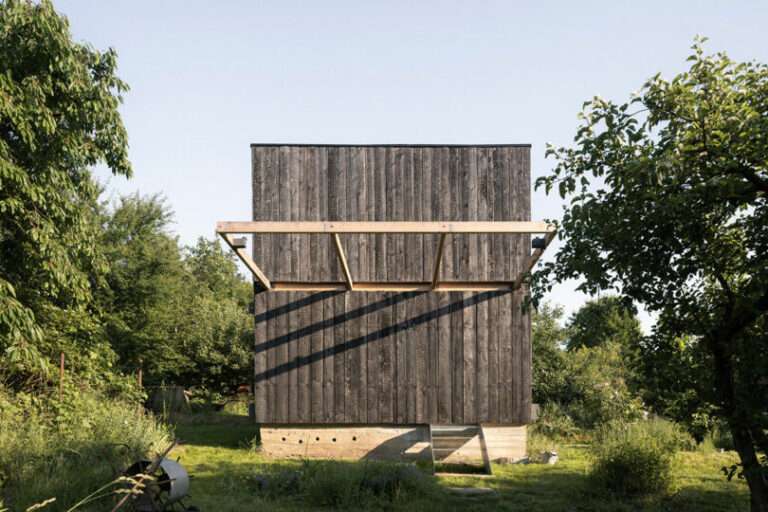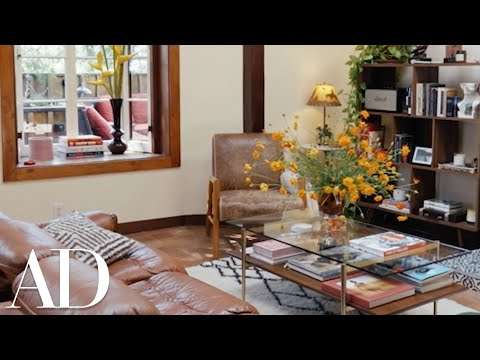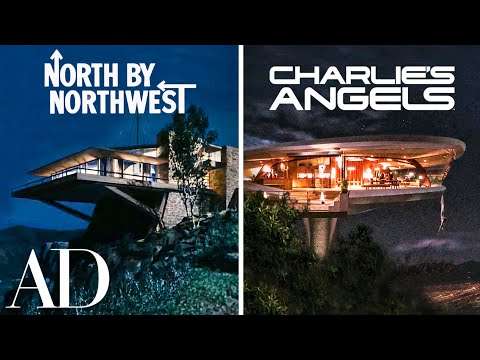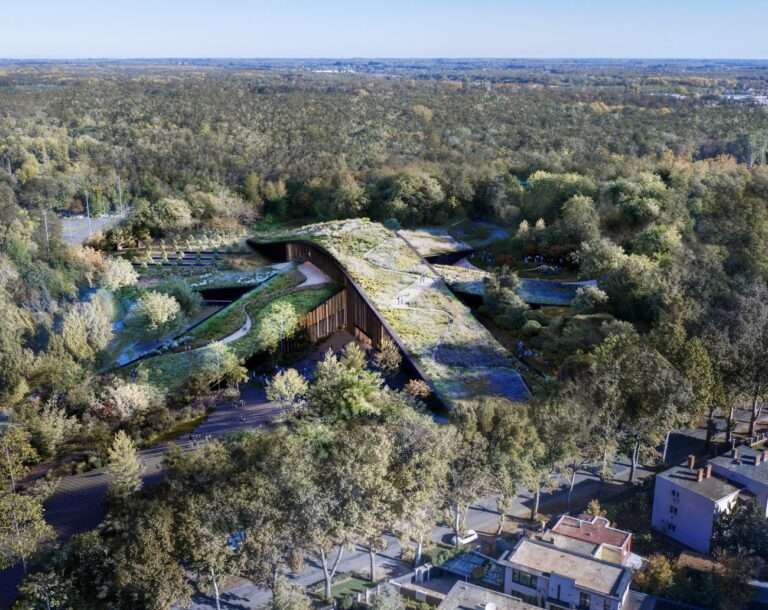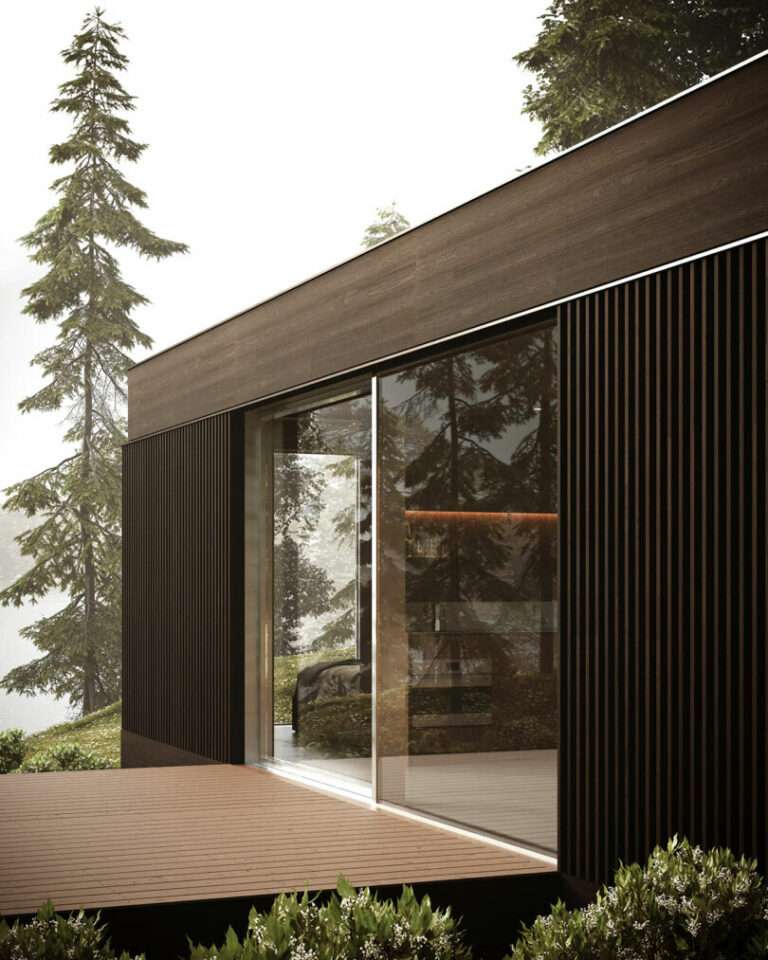Architects Petre Tej and Marek Blank collaborated with engineer Jan Mourek to create this minimalist bridge across the River Vltava in Prague, which is intended to resemble marble.
Spanning 300 metres, the concrete bridge for pedestrians and cyclists connects the banks of Prague’s Holešovice and Karlín districts, giving it the nickname HolKa.
At its western end, Tej, Blank and Mourek also created a ramp that leads to Štvanice, a small island that is home to a park and sports areas.
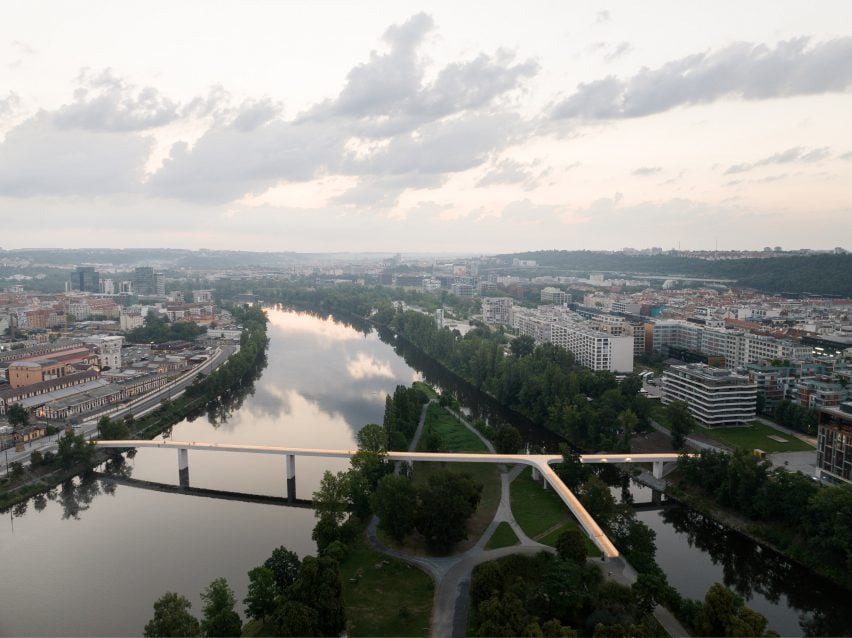

“Holešovice and Karlín are two completely different parts of the city,” Petr Tej told Dezeen.
“Karlín is a new developing residential and administrative centre, in contrast to Holešovice, an area with lots of services, small shops and young galleries,” he explained.
“The park on Štvanice island makes urban wilderness accessible to both districts.”
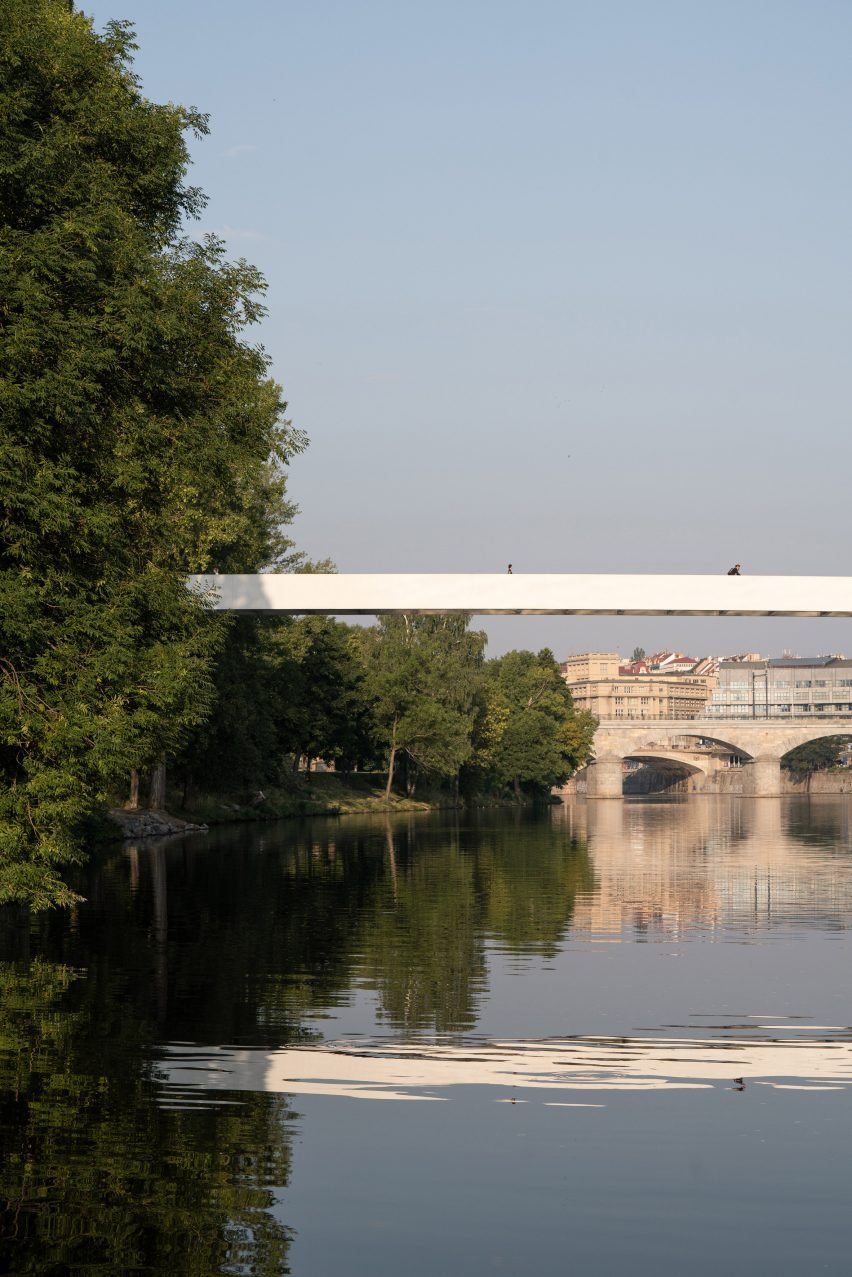

The slim and minimalist profile of the Štvanice Footbridge is formed of a continuous beam of white concrete with an H-shaped profile, chosen to evoke a white marble sculpture.
Its design also draws on other low-lying bridges across the capital of the Czech Republic, which are designed to limit the disruption to views of the city.
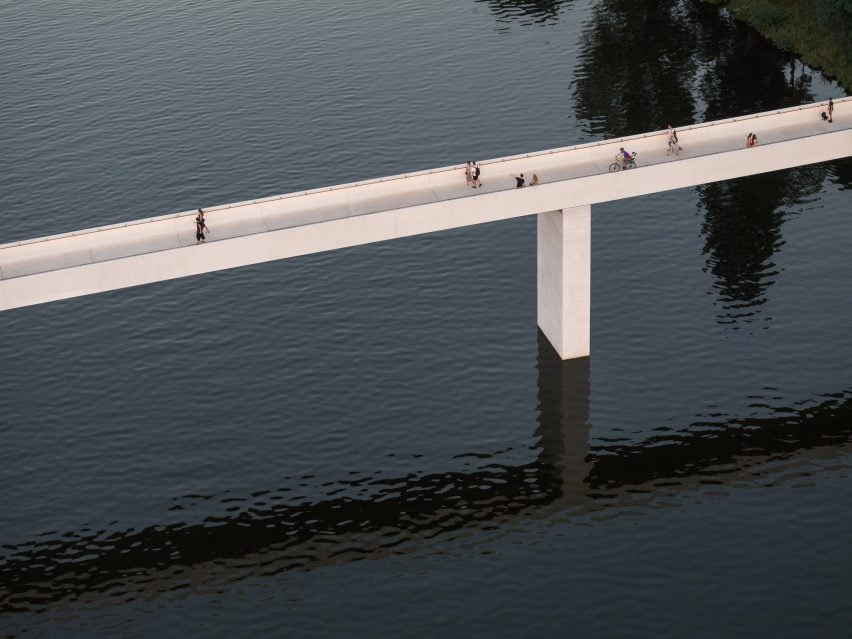

“The silhouette of the bridge reacts to the Prague skyline in particular by the fact that its structure is not high, with no pylons and tie rods that would disturb views of the city,” said Tej.
“All Prague bridges are structures with a lower structure, and the choice of full parapet beams responds to parapets on most Prague bridges,” he explained.
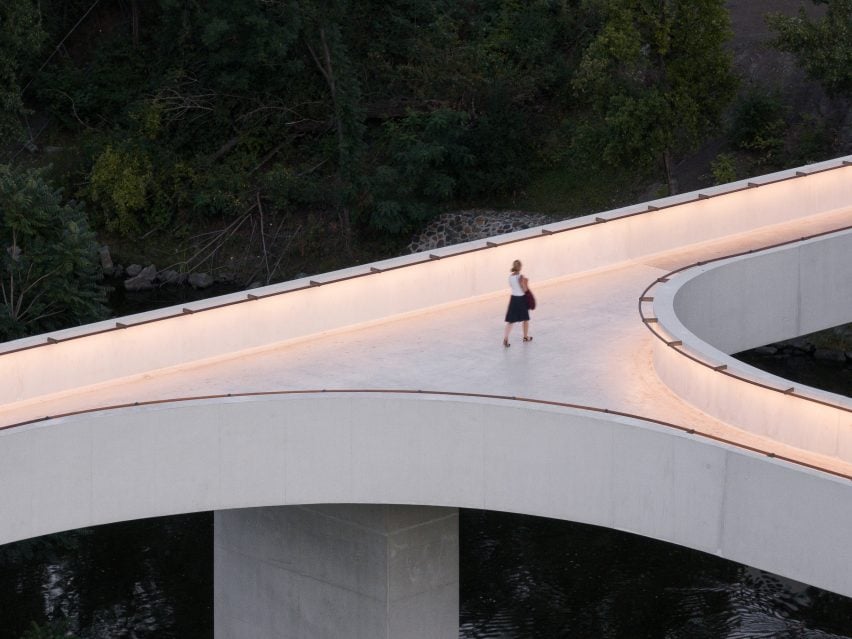

“The character of the surface should evoke white marble – the bridge should act as a large sculpture in the city, a white, minimalist line,” added Tej.
A series of simple rectilinear columns support Štvanice Footbridge from below, fitted with a hydraulic system that allows the entire walkway to be raised in the event of extreme flooding.
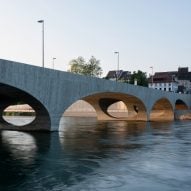

Fluted metal handrails run along either side of the walkway, finished at their ends with a variety of bronze animal sculptures by artist Aleš Hvízdal that reference the history of the area.
These are accompanied by a sculpture called The River by Jan Hendrych, which sits at the foot of the ramp on Štvanice.
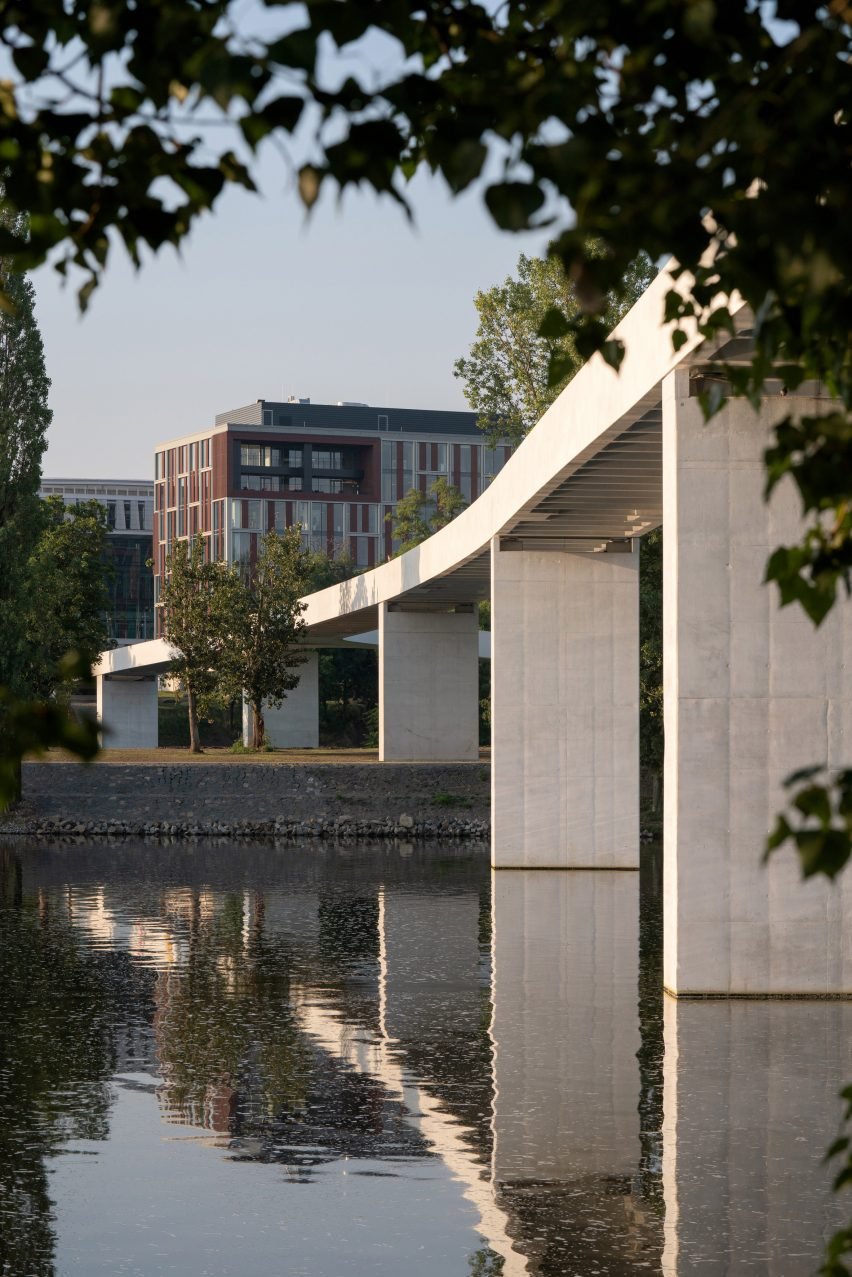

“The animal motifs are actually a kind of monument to the animals that suffered on different sides of the bridge,” explained Tej.
“There was a cavalry regiment on the Karlín side, hence the horses, hare hunts were held on Štvanice island, hence the hares, and the market area in Holešovice was originally used as a slaughterhouse, hence the bulls,” he continued.
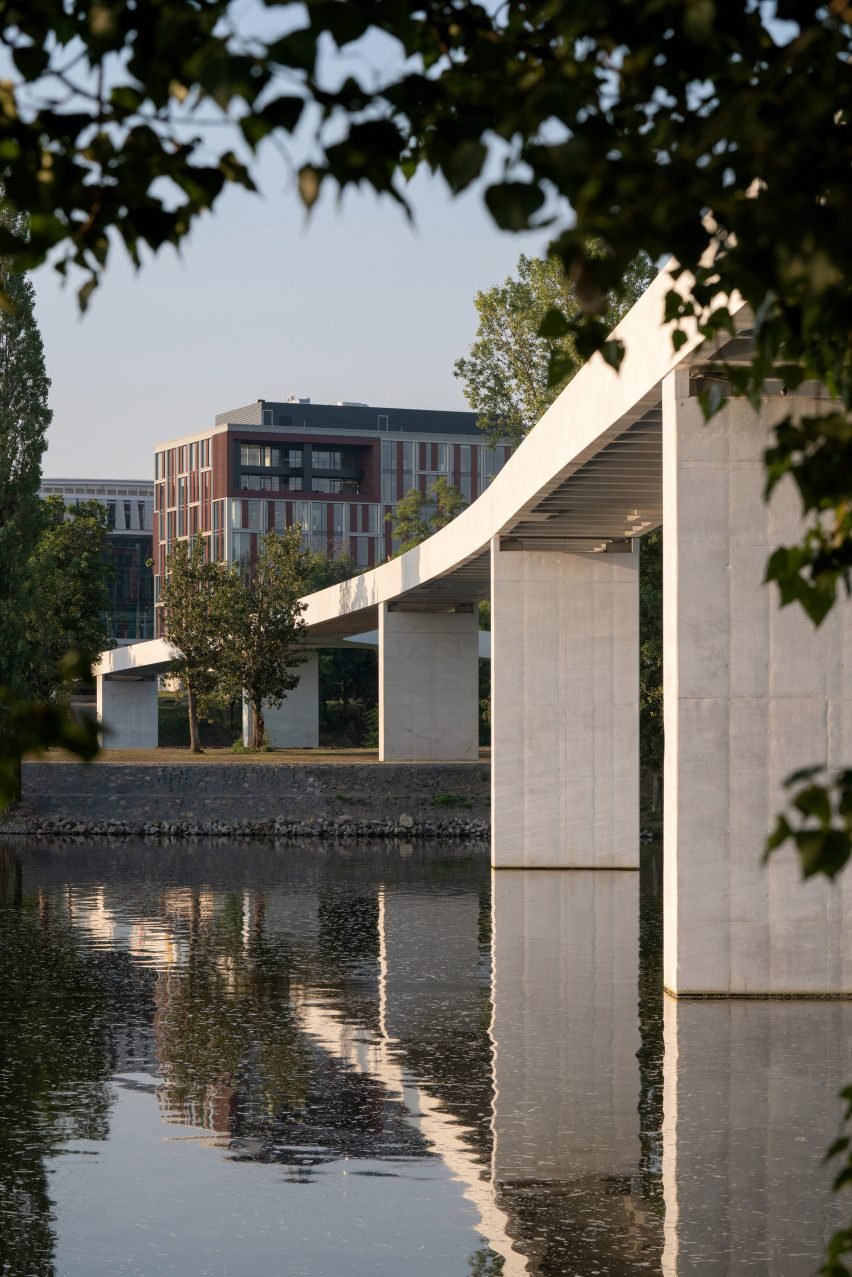

Other bridges recently featured on Dezeen include the Jiangxi River Bridge by Zaha Hadid Architects, which features sculptural steel arches, and a concrete bridge across the Aare River in Switzerland by Christ and Gantenbein.
The photography is by Alex Shoots Buildings.
